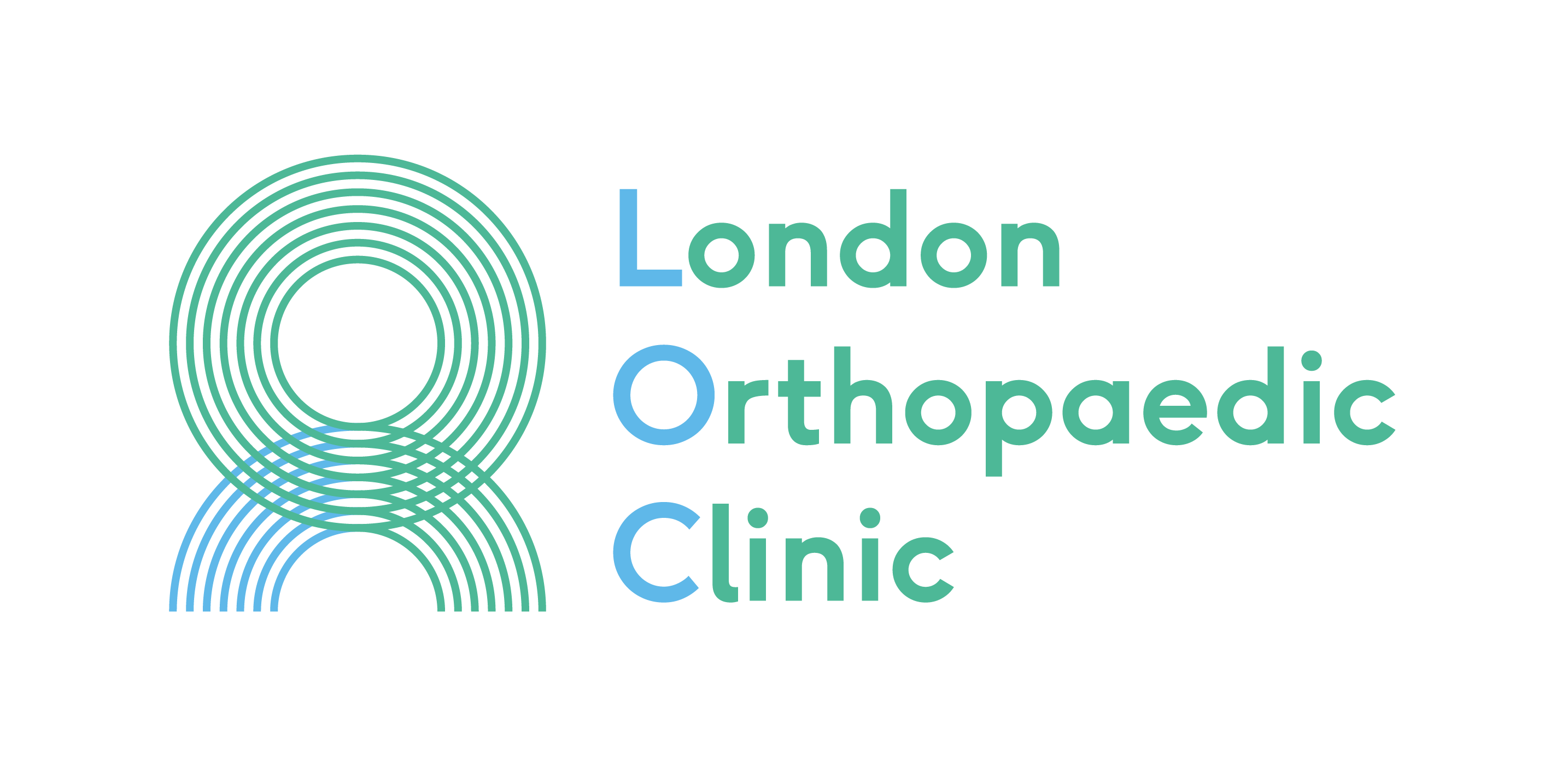Total Hip Replacement
Total Hip Replacement is surgery to remove a damaged or diseased hip joint and replace it with a prosthetic device.
The pain and stiffness of hip arthritis can restrict your movement and reduce your quality of life. The London Orthopaedic Clinic’s dedicated Hip Specialist Team provide a comprehensive same-day service for the assessment and diagnosis of hip and groin conditions, so that a bespoke treatment plan can be targeted to your needs.
If hip pain is stopping you walking, enjoying sport, or living an active life, the world-leading orthopaedic surgeons at the London Orthopaedic Clinic can surgically replace the joint. They operate in state-of-the-art operating theatres, using the latest equipment, and prosthetic technology. Following surgery, a skilled rehabilitation team will provide support to help you quickly get back on your feet.
What is hip replacement?
Total hip replacement is surgery to remove the damaged joint surfaces and replace them with prosthetic implants. The surgeon removes the arthritic ball on the end of the thigh bone and hollows out the hip socket. The specialist will then replace them with high-tech prostheses that can glide smoothly over each other.
There are many prosthetic devices and procedures available. Your consultant surgeon will make a detailed assessment of your hip and recommend the replacement that best suits your hip and your lifestyle. Options include:
- Uncemented total hip replacement
- Cemented total hip replacement
- Hip replacement using durable bearing surfaces
- Hip revision, for people who have had previous hip replacement surgery
What happens in total hip replacement surgery?
The London Orthopaedic Clinic offers hip replacement surgery under general anaesthetic or using spinal anaesthesia, so that you are awake but your legs and hips are numb. Your surgeon will discuss the options with you, always considering your preferences and your general health.
The surgeon will make an incision in the skin over your hip. The length of the incision will vary, depending on the local anatomy.
Your consultant will carefully cut away the ball from the thigh bone. They will then attach a metal implant into the hollowed out stem of the femur. A new prosthetic ball made of ceramic or metal is attached, to replace the diseased femoral head.
The specialist will then remove the damaged cartilage from the hip socket and precisely insert a metal prosthetic component. Then a specially-designed spacer device is placed between the ball and socket to allow the surfaces to glide easily over each other.
The surgeon will then suture the muscle and skin closed, in layers. In total, the operation takes around two hours.
What are some potential complications of hip replacement?
All surgery has risks; the expert surgeons and staff at the London Orthopaedic Clinic work to reduce the chance of complications and support your safe recovery.
Pain, bleeding, swelling, infection and the development of blood clots are potential problems with any operation. Joint replacement can also be associated with nerve damage, dislocation of the joint, fracture, leg length discrepancy failure of the bones to heal and grow into the prosthesis and ongoing hip pain.
Complications of hip replacement surgery are uncommon. For most patients, the operation relieves pain and allows them better movement, flexibility and function. As with all joint replacements, the prosthesis is susceptible to wear and tear. The procedure may need to be repeated after ten years or more.
Before your surgery, the consultant will explain any potential problems and the measures that the London Orthopaedic Clinic takes to minimise risk
How long does it take to recover from hip replacement?
Your surgeon and the London Orthopaedic Clinic rehabilitation team will support your recovery, control pain, and get you back on your feet.
The rehabilitation team will aim to get you up and moving within twenty-four hours.
The specialist physiotherapists will support you walking with crutches or a frame. They will also give you a programme of controlled mobilisation to help you regain fitness and function. Most people are discharged within 5 days of surgery.
The team at the London Orthopaedic Clinic will keep a close eye on your progress. At around 6 weeks you will see your consultant for a review, an assessment of the wound and an x-ray to check that bone is growing around the prosthesis. However, the team are available at any time if you have any problems or concerns.

Why choose the London Orthopaedic Clinic's Hip Specialists?
The London Orthopaedic Clinic provides high-quality, expert orthopaedic and musculoskeletal care, tailored to the individual needs of our patients. The Clinic is based at Mayo Clinic Healthcare, at the heart of London’s internationally renowned Harley Street medical district. The London Orthopaedic Clinic offers cutting-edge diagnostics, treatment, management and personalised care.
The expert multi-disciplinary team includes more than 25 leading orthopaedic surgeons, pain management specialists and radiologists. They work together to reduce pain, improve movement and make a real difference to patients’ lives.
The London Orthopaedic Clinic offers patients something truly unique: access to world-leading experts, high-tech imaging and the latest innovative treatments, together with the feeling of trust and safety of a small family practice.
How much does total hip replacement cost?
Hip replacement surgery at the London Orthopaedic Clinic may be covered by your health insurance policy. Competitive packages are also available for patients who are self-paying. Contact a member of our friendly team on 020 7186 1000 or at info@londonorthopaedic.com to find out more.
